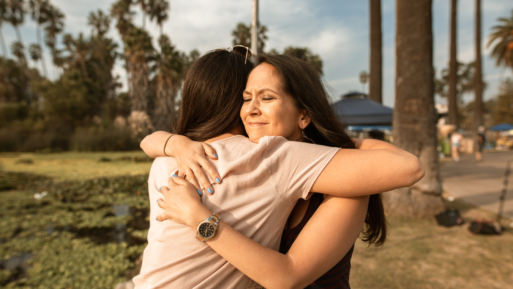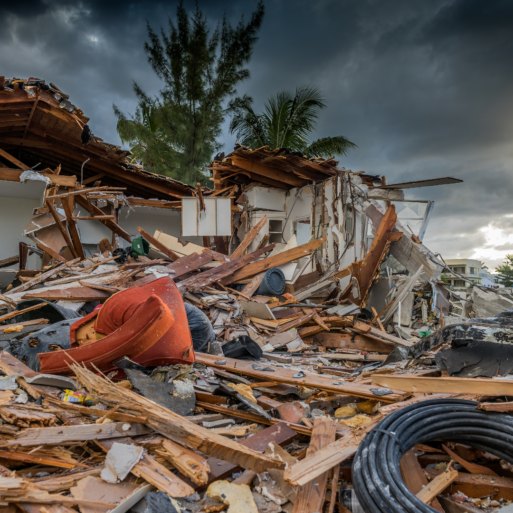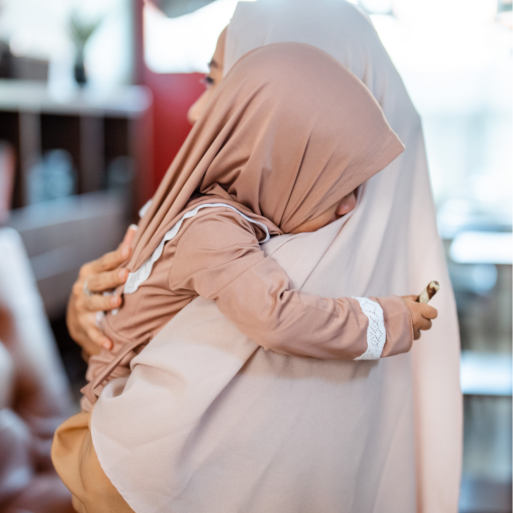 Collective grief happens when a community, society, or nation all experience extreme change or loss. It is common to experience collective grief in the wake of major events such as wars, natural disasters and other tragedies, even if you didn’t experience them firsthand. The past few years have seen countless events that would qualify: Entire swathes of North Carolina have been washed away by Hurricane Helene. Florida has been rocked by a succession of record-breaking hurricanes. In the west, entire neighborhoods are lost to wildfires with startling regularity. The Middle East, Sudan and Ukraine are embroiled in conflicts that continue to escalate, with unspeakable violence and devastation being inflicted upon countless people, and widespread ramifications that echo throughout other nations. The list goes on and on and on, and it can literally make people sick.
Collective grief happens when a community, society, or nation all experience extreme change or loss. It is common to experience collective grief in the wake of major events such as wars, natural disasters and other tragedies, even if you didn’t experience them firsthand. The past few years have seen countless events that would qualify: Entire swathes of North Carolina have been washed away by Hurricane Helene. Florida has been rocked by a succession of record-breaking hurricanes. In the west, entire neighborhoods are lost to wildfires with startling regularity. The Middle East, Sudan and Ukraine are embroiled in conflicts that continue to escalate, with unspeakable violence and devastation being inflicted upon countless people, and widespread ramifications that echo throughout other nations. The list goes on and on and on, and it can literally make people sick.
Like individual grief, there is a feeling of powerlessness that comes with collective grief. Unable to prevent the loss or change, we feel despondent in its wake. If you can relate, perhaps you can take comfort in the fact that you’re definitely not alone. Collective grief is a well-documented phenomenon and there are ways to manage its symptoms.
About Collective Grief
Grief – collective or otherwise – can affect every aspect of one’s being. It can overwork the nervous system and weaken the immune system. Some physical symptoms of grief include digestive problems, fatigue, headaches, sore muscles and even chest pain.
Collective grief is often associated with two closely related forms of grief: cumulative or compounded grief, which is when one experiences a series of losses that occur over a relatively brief period of time; and anticipatory grief, which is the distress one may feel in the days, months or even years before an impending loss. These forms of grief can overlap, or even occur simultaneously. For example, consider the losses our country has experienced thanks to the escalating strength of natural disasters. They seem to occur one after the other, often affecting the same geographic area. It wouldn’t be surprising if people living in Florida, for example, feel compounded grief for their losses, but also a certain degree of anxiety and anticipatory grief as well, because they will likely experience similar losses again.

Hurricane damage to homes in Florida
Secondary Traumatic Stress
When tragedy strikes, some experts view collective grief as a part of “secondary traumatic stress.” Dr. Leia Saltzman at Tulane University describes collective trauma as “an event, or series of events, that shatters the experience of safety for a group, or groups, of people. … These events are different from other forms of traumatic events because of their collective nature. That is, these events are a shared experience that alter the narrative and psyche of a group or community.”
In other words, even if you weren’t physically present for the traumatic event, if you no longer feel safe as a result, you may experience grief for that loss of security. With social media giving us immediate access to events occurring across the globe, even individuals and groups who are not directly involved in those events are still greatly impacted by them.
For example, the Israel-Hamas conflict has affected many in the United States. It’s upsetting to hear about the attacks, the massive loss of life and brutal violence being perpetrated abroad. Many also feel uncertain about what that conflict could escalate into, and worry about the future going forward. Others are already experiencing concern for their own safety because of rising anti-semitic incidents in the U.S. as a result of the conflict. The collective grief in response to the war is real and legitimate, and needs to be recognized as such in order to process.
How to Cope
Acknowledge Your Feelings
Collective grief is difficult to manage because it can feel so intangible compared to other forms. If you’re grieving because someone you love has died, there is a direct cause and effect that can offer a degree of comfort. But collective grief as a result of secondary traumatic stress can be difficult to pinpoint, so the first step is to acknowledge one’s feelings. When people allow themselves to experience all the emotions that grief carries with it, they can be better regulated. Let yourself grieve. Allow yourself to feel anger, or shock or sadness, and try to move through the fear and anxiety.
On the other hand, one might feel numb when everyone else is grieving. That’s okay, too. That numbness could be a coping mechanism offering protection from the seemingly endless barrage of tragedy we see every day. Instead of trying to force oneself to feel what others are experiencing, just recognize that numbness might be an individual method of processing what happened. On the other hand, if one is pushing emotions away out of fear of feeling them, it’s a good idea to seek support so as to be prepared to adequately process those feelings down the road.

Take Care of Oneself
When experiencing collective grief, take a cue from the airline safety speech: Apply the oxygen mask to yourself first, so you’ll be able to help anyone else who needs it. It may feel indulgent, but your emotions will be better regulated, and your actions more helpful to those around you, if you take care of yourself first. Of course, in the wake of a tragedy it might be difficult to practice one’s usual self-care routine, but it is important to remember to take time and meet basic needs. Stay active. Exercise. Eat nutritiously. Take a break from social media. If grief comes from a sense of helplessness, find a way to help.
Reach Out
The Grief Recovery Center of Houston points out that “if the grief is collective, so the healing should be as well.” There is healing power in solidarity, and part of acknowledging your collective grief is to share it with others who might be experiencing it. That could be calling a friend to cry together, or it could be embracing a neighbor who also lost everything. If you’re overwhelmed, seek help from someone who can help you process your grief.
This world can be a lot; there is no shame in reaching out.

 Understanding Collective Grief
Understanding Collective Grief


 “Hand to Earth” by Andy Goldsworthy
“Hand to Earth” by Andy Goldsworthy

 Caring for a Dying Loved One? Be Gentle With Yourself.
Caring for a Dying Loved One? Be Gentle With Yourself.














